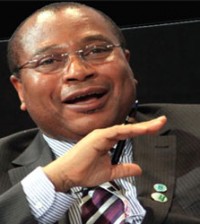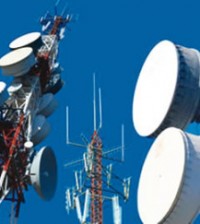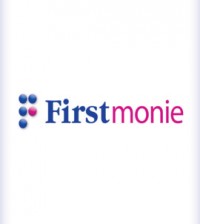Prince Osuagwu: ‘Nigeria May Soon Out-Stage Kenya Dominance in Mobile Money Services’
INTERVIEW
Since Mobile Money took centre stage in Nigeria with the licensing of operators by Central Bank of Nigeria (CBN), the controversy has been whether it would not have been appropriate for the apex bank to license mobile operators who own the platform used for the transactions. But CBN stood its ground saying that it prefers to license banks.
However, some of the operators like MTN have found a way around the situation, by partnering the major mobile money licensees. This has led to massive campaigns which confuses people on who actually is the real mobile money operator.
Financial Vanguard recently engaged the General Manager, Business Development, Sales and Distribution department of MTN Nigeria, Mr Richard Iweanoge, who cleared the air on MTN’s role in mobile money as well as other development around mobile money in Nigeria. Excerpts….
A recent newspaper report revealed that the mobile money market in Nigeria has the capacity for N1.17 trillion worth of transactions in six months if the current number of about 1000 agents can be raised to 250,000 agents. What is your take on this?
Let me use an analogy to answer that question, if you want to buy MTN airtime anywhere in this country, you are likely going to find someone within 100 meters who is offering to sell it, either on a street or anywhere. Now, how did that succeed? Because we created a very robust channel of distribution where people saw the business opportunity and actually keyed into it and invested into becoming MTN distributors, sub distributors and retailers.
The reason I am using that analogy is that the team here in sales and distribution for MTN is the team that made that happen and it is the same team that is getting a robust channel of distribution for mobile money. Even if we just piggy-back on the current channel of distribution we have which is the retailers, the Sub distributors, clearly we will have more than that 250,000 distribution points and that is our goal. We think it’s a matter of time, as people understand the business model, more and more people will come. Within one year we think we will surpass the 250,000 points of service if we keep going at the rate we have been going.
It is really replicating what we already have and getting people we already have to participate in mobile money. So it does not take much to educate them and show them the business model and the opportunities. So if you sell airtime, nothing stops you from also participating in mobile money provided you have the right documentation that we can register you with.
That also brings us to the million dollar question. Is MTN a mobile money operator?
We are providing mobile money services to customers in partnership with mobile money license holders. Like the name implies mobile money clearly means you need to transact with your mobile phone. We are the service providers on mobile phones.
We don’t have a license but we are working with partners who have license to provide the service to the consumers. Even with the license they still need a mobile partner technically to provide the service. So what we have done in this case is to partner with Fortis bank and Stanbic IBTC bank that are licensed by CBN. We will still partner with more others to provide the service to customers.
In this partnership who has the greater stake?
It depends on what you mean by the greater stake. It is the service we want to provide to our customers. The licensee has a need to reach our customers so we give him access to our customers. It is really not about who has the greater stake, it is about the customer. It is about financial inclusion of Nigerians. People need to be able to transact business electronically.
It is about empowering and pushing forward the government’s wish for a cashless society. So it is all wrapped up in one. Whether it is the government or MTN or the licensee that has the highest stake, I don’t know. As for us, we are happy to see our customers enjoy these things.
If something goes wrong with transactions who will be liable?
Let me explain some of the things we have done around security because in the end it is really about people’s money. The first thing is that when you want to participate in mobile money services there are some key information we must have about you.
You know most subscribers on the MTN network are registered now, so there is a record of their details, because NCC requires those things. At least we know your name and address and other vital information and somewhere in this country between NCC and us, we know exactly every customer we have. When you subscribe to mobile money, CBN regulations also requires that you fill a form and that form contains other vital information about you.
Secondly, if you do register for mobile money service, part of the registration process also requires that you will be given a unique form of identifying yourself like a passport which is a four digit code and there is no transaction you can do that you will not be told to put in your code; and your code which is tied to your number is the unique access you have to carry out transactions.
If you actually lose your phone and someone else wants to use the stolen phone to transact business, because he doesn’t have access to that unique code it will not go through except you have divulged it. The way I see this, when the banks came up with ATM cards, it was just a magnetic strip and people were hacking those things and succeeding. After a while they changed it to the pin and chip card. Now with your code, chip and pin, the number of successful fraudulent activities on your ATM card have almost come down to zero. The level of security we have in mobile money matches exactly what you have in a chip and pin solution.
However, technology is ever changing. Someone someday might be able to discover loop holes but we are always going to be one step ahead in trying to find more secure solutions. Also remember these are all electronic transactions and because every single customer we have is registered, we know them. If anyone does any fraudulent activity and moves money we know exactly where it is coming from and we know exactly where it is going to. It can be investigated and people can be held responsible for it. It is not like cash that you can disappear with, it must go somewhere, and because it is going somewhere, we will know who owns the number. We have the person’s details and we can track it down.
If the CBN had adopted a mobile operator-led mobile money model, what do you think mobile operators would have done differently?
Different countries have approached this in different ways but the end result has always been the same thing. In Uganda and Kenya for example it is the operators that have the licence. In some other countries, it is the banks and some other people that own the licence. I really don’t think we might have done things differently apart from saying we own the licence. But in terms of the services, the functionalities are exactly the same.
Quality of service is still flagging. Will it not affect mobile money transactions?
Mobile money at the moment actually runs on what we call USSD. USSD is that channel you use when you want to do account balance enquiries and if you notice, more often it delivers even when SMS fails in most cases. The channel through which mobile money goes is slightly different because we know it is money we are dealing with so we are constantly trying to optimize it so we don’t have issues with hanging network. But even if you do have issues the beauty of the electronic money transfer is that everything is traceable.
You can track it and know exactly where it is. If there is an issue, we set up a dedicated help desk. The reason the help center number is not known is because only our agents and super agents that deal with mobile money have access to calling it. So if a customer makes a transaction and it is not going right, you can call the mobile money help desk and the guys will look at it from the back end and tell you exactly what is going on.
If you make a transaction and you have not received notification, the agents will tell you the state of the transaction. This will take away some of the apprehensions around maybe if the network is bad you may not be able to continue with your transaction. The frequency at which this even happens is quite low unlike SMS and calls.
Considering the poor literacy level in Nigeria, what specific measures will you take to ensure that mobile money is understood and used at the grassroots?
It depends on what you consider to be illiteracy. You can be educated and at the same time be an illiterate and you can be uneducated and be very smart. Mobile money is really about financial inclusion. People carry out financial transactions every day and all we are trying to do with mobile money is to bring a lot of people within the country who currently don’t enjoy formal financial services unto the platform where they can actually carry out financial transactions and be within that formal channel. Almost everyone in this country owns a mobile phone so in my view mobile phones will be what credit cards are for people in the Western world. Everybody has access to it.
In terms of illiteracy, if you can send a text message which I think the majority of mobile phone owners can do, then you can perform mobile money transaction. We have made it so simple that the numbers of steps you need to take to carry out the transaction are pretty basic.
Of course we have people in channel, we have people who we call super agents and agents with their principal role being to represent us in front of the customers and they have been properly trained by us. The goal is when the customer sit in front of them they can take the customer through how these things work. We constantly carry out training for them and do a lot of above-the-line advertising just so we can get the information and knowledge out there for people to transfer money.
How has the market responded to this Mobile Money initiative?
I think quite enthusiastically. I was personally surprised last month when we went round the country launching mobile money and I was amazed with the turnout and the eagerness with which people came out wanting to register. At the moment we have seen close to 20,000 people registering on a daily basis for the service.
It is astronomical considering that we just started and also considering that not too many people know about it and understand what it is all about. So to get this high number of people registering every day is significant. My view is that people are enthusiastic and they seem to want it and I think in the long run, it will be a success.
In your opinion, would you say that the cashless policy is succeeding?
Mobile money is enhancing the government’s desire for a cashless society because now I can transfer money to my son in school, to my mother in the village electronically without the need to physically move cash from one location to another.
Now I can actually buy things in certain places using my mobile money as a means of payment so I don’t need to carry cash as long as I have my phone which I have all the time with me. If you notice, your phone is the closest thing to you now. It is always with you so just having my phone with me means I have access to my money, which means I have access to carrying out financial transactions.
I want you to emphasize more on the role MTN is playing in spreading agents in Nigeria because your customers may want to know those things you intend to put in place to probably ensure you have a wider spread than any other network?
First of all, let me say I am not in competition with other networks on this. Our goal is to give customers the ability to do financial transactions where ever they are. People want to be able to send money to others anywhere and they can cash out where ever they are. So this is not a competition of any sort. What I think we can do is, we need to have a robust distribution channel, that is, enough people who take mobile money as a business they want to transact in and set up shop to transact mobile money business and these are basically retailers.
We have a census that tells us that we have over a million retail points in Nigeria. We currently have in our data base of over 300,000 retail points that we interact with. If we can get just these retail points on board- because already we have this number – to mobile money. We don’t force people to become our agents. We try to create a value proposition that is compelling which people can see and get them interested in it.
In terms of value proposition we have a very robust offer we give to people we call retail agents. These retail agents, for every transaction and every customer they register there is a certain commission that they earn for carrying out the services on our behalf. So if you go to them and you cash out or cash in or transfer money, there is something they get. We think that this proposition is compelling enough to propel them to want to join the business.
Last month we had a trade launch where we went to almost 12 cities in the country. We called retailers, retail agents and super agents, told them what we wanted to do with mobile money and that they should register if they were interested. As we speak now, I don’t have the exact number but the enthusiasm we saw tells us that in a year’s time almost the number of people we have as retailers (MTN) will be involved in mobile money.
Do you see your retail points in another two years surpassing the current retail customers you have?
The next two years, mobile money points of service will be as ubiquitous as we currently have for points where airtime is sold. It will be as common as the points where you can buy airtime.
Source: Vanguard








